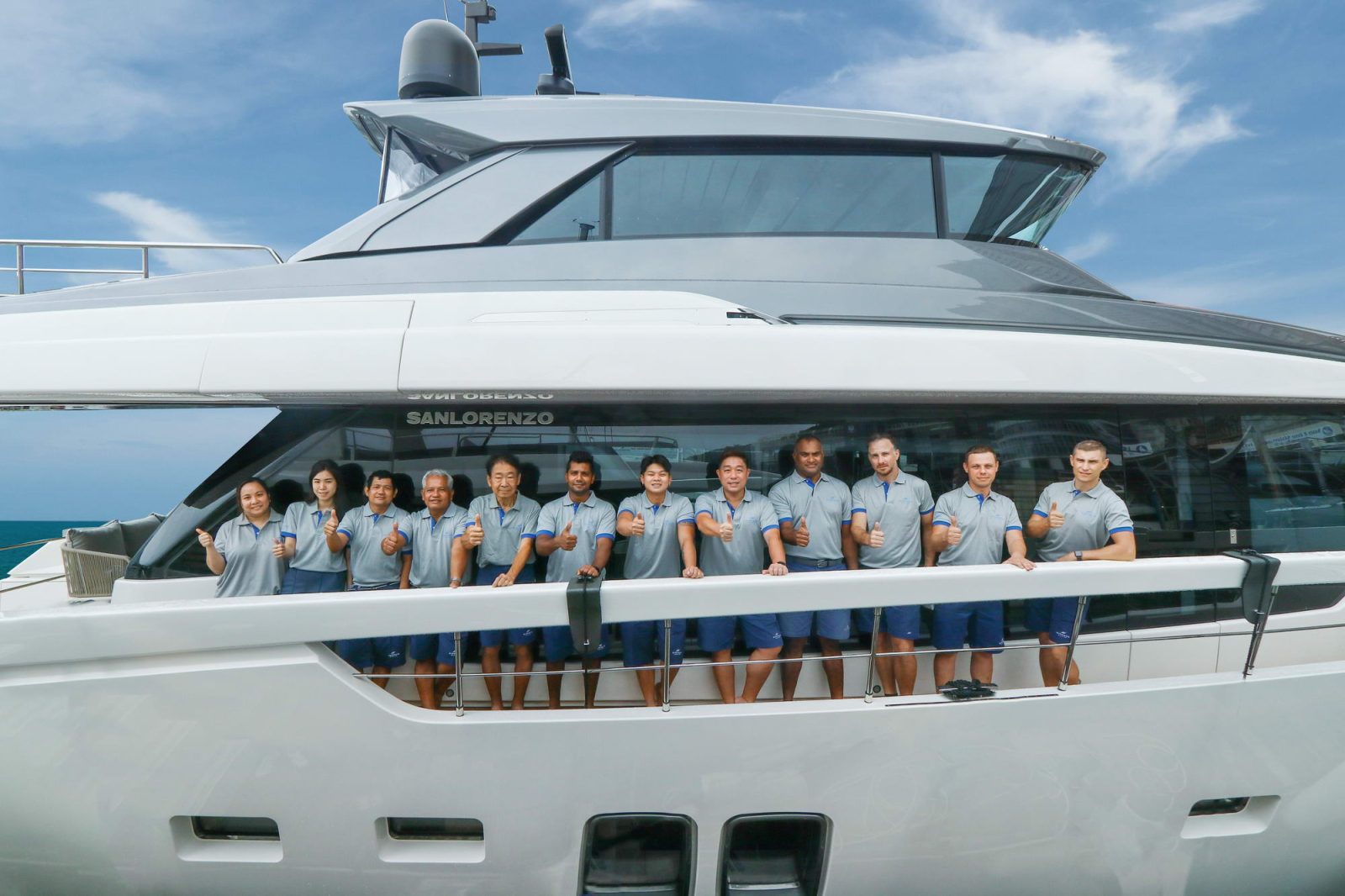


Whether on a charter or your own private yacht, one sure thing is the necessity for a captain. Being the highest-ranking officer onboard, it is safe to assume that a captain’s responsibilities go far beyond navigating waters. Working one’s way up the ladder and achieving this title takes skill, knowledge, perseverance, and an incredible amount of experience. We all know that a captain’s duties can be vast, strenuous, complex, and even dangerous, but what exactly are they?
Today, we will be looking into the roles of a yacht captain. Besides navigation, ensuring our safety, and making our time as leisurely as possible, a captain’s list of responsibilities is seemingly endless. If you aren’t already aware of the tremendous amount of duties they take on, by the end of this article, you will have a whole new level of appreciation for your yacht captain.
THE UNKNOWN RESPONSIBILITIES OF A YACHT CAPTAIN
Now, we will look at some of the primary responsibilities of every yacht captain. Starting with some of the more apparent duties and going onto things that most of us wouldn’t have even considered. Of course, depending on your yacht’s size, function, and features, a captain’s responsibilities can stretch far beyond this list.
Crew management – The average yacht will have between four and twenty crew members. Larger yachts will, of course, have much more. It is the captain’s responsibility to hand-pick the right crew for the job. The captain needs to assess their understanding of each role and gauge each crew member’s compatibility so that long voyages run as smoothly as possible.
Once the crew has been chosen, the captain must lead, ensuring they are doing a good enough job. This requires the captain to have an understanding of every role onboard a yacht. If you have experience with yachts, you will know how vast the job roles can be. So, in short, a captain needs to choose a crew that will work well together and be experienced in their field. They need to know the ins and outs of every job onboard, be someone to turn to and answer questions, and always be readily available to deal with any situation that arises amongst the crew. This alone is no small task.
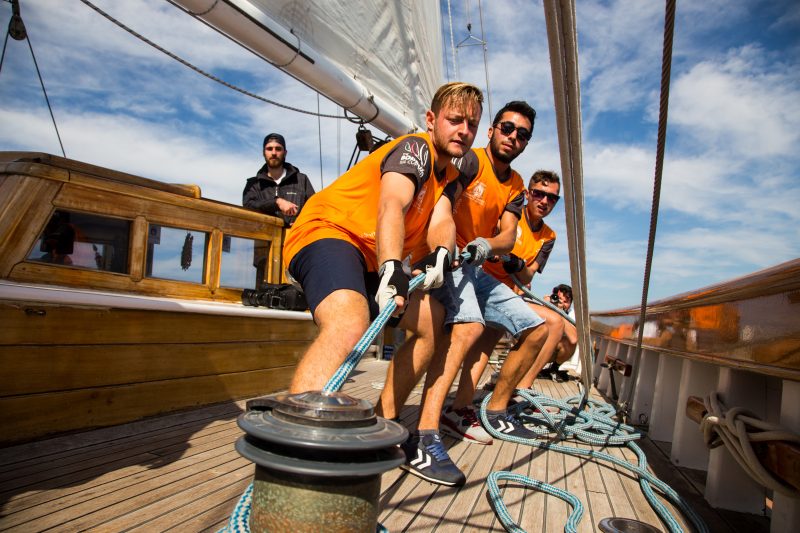
Guest Relations – Once the crew is sorted, the most important thing is making sure the guests onboard have precisely what they need and are having a good time. Depending on their wants and needs, this can range between having toys and tenders ready on time, serving a gourmet seven-course meal with clockwork precision, making last-minute changes for unexpected decisions, or simply providing onboard entertainment in the evenings. Whoever is taking the yacht out will have numerous requests, so the captain needs to communicate, provide, and please with exceptional punctuality.
Record Keeping – This can be one of the most meticulous roles onboard a yacht. To ensure everything is running to absolute perfection, everything must be recorded. Depending on the preparation for the voyage, this job may begin six months or more before the date of departure. Records must be kept of various things such as itineraries, safety checks, maintenance checks, onboard equipment, incidents, food and beverages, crew working hours, and much more.
Emergency Preparations – The captain is responsible for running through and planning for all types of emergencies that may happen during a voyage. All the safety equipment must be checked over and restocked regularly. The larger the vessel, the more work this entails. On board a superyacht, there may be various kitchens, electrical systems, and items that need to be handled with caution. Every section of the yacht should also be equipped with life jackets and other necessary safety equipment. All emergency tenders must also be easily accessible from all areas. On top of this, the captain must inform the crew and guests of all emergency routines should they encounter one during a trip.
Liaising with Port Authorities – As well as making sure everything is ready for the sailing trip, the captain also needs to plan far in advance to communicate with port authorities. This planning involves gaining permission to birth in various areas and ensuring they are permitted to moor up throughout a journey. Suppose a trip is planned through various countries, In that case, this can be an incredibly arduous task, communicating with people in various languages and understanding the required paperwork needed to adhere to all of the different maritime laws.
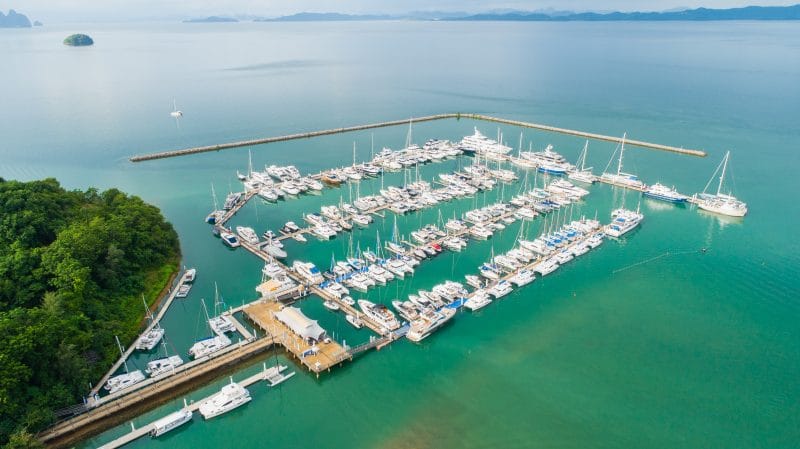
Itinerary Planning – If you are planning a yacht trip, you want absolute luxury and perfection. One thing that we all love about these extravagant voyages is having everything we could possibly want whenever we want it throughout our journey. This is something that needs to be overseen by the captain. Without extensive planning, the captain runs the risk of disappointing guests, which is something that nobody onboard wants. So, this is something that is taken extremely seriously. Furthermore, the crew also need to be looked after, so planning the itinerary will include food, beverages, toys, tenders, water, bed linens, toiletries, and anything else you might expect in a luxury hotel.
Maintenance oversight – The multitude of components onboard luxury yachts can also be extensive. There are multiple checks throughout the year that need to take place to ensure the vessel is running smoothly. This might include checking the engines, waxing the exterior, checking onboard electrics, and testing all onboard equipment. On top of this, there are safety checks that need to be taken out before it is okay to set sail. Before a trip, both the interior and exterior will need to be cleaned, and the furnishings will be given a once-over. Onboard water systems will also be checked before each trip. This is another weighty responsibility that falls to the captain.
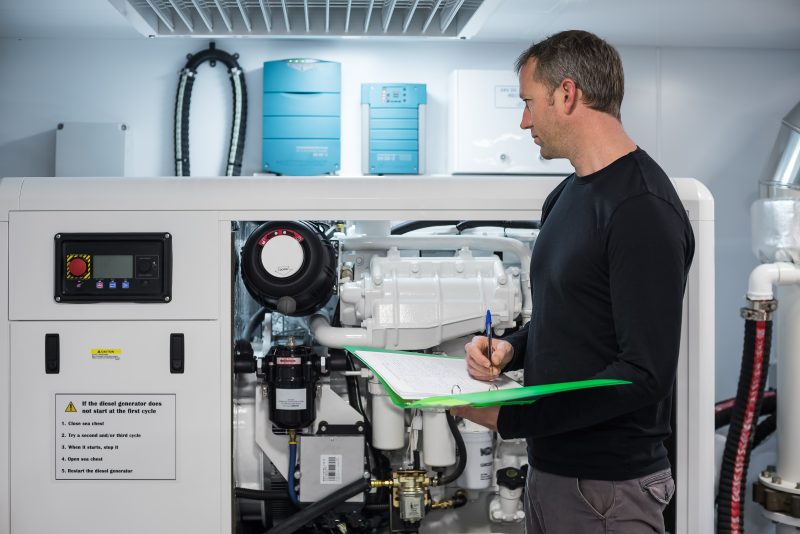
Planning voyages – This may sound like one of the more fun responsibilities of a yacht captain, but by no means is it an easy task. Once the captain has discussed the route with the yacht owner or its guests, the planning they undertake can be tremendously long and detailed. Once they have researched the authorities they will need to go through to gain permission; they will need to assess whether or not the route will be safe in terms of water depth and weather conditions. Usually, the captain will encounter several challenges with each route they plan, so they are left with two options. They either contact the owner or guests to make adjustments to the original route or find an alternative route to avoid treacherous seas. Even when finding an alternative route, they must ensure that this will not cost them too much time and it is communicated in detail with all necessary people.
Managing Finances – If you imagine everything onboard a yacht; the furnishing, food, bedding, towels, dishes, glasses, cutlery, toiletries, electricity, water, fuel, and so on; it all comes at a cost. In order to ensure everything is above board and all guest’s wishes are catered for, calculating and managing the finances can be excruciating. Often, the captain will have a team that assists with this job, but it is the captain’s job to make sure it is done accurately and within budget. It is even more important to keep within budget if it is for a charter. The captain will need to come up with correct estimations of costs before spending, get it signed off, and make sure the crew keep strictly within the original budget. This role can be one of the most mentally straining on a yacht.
Legal and Regulatory Compliance – This is similar to liaising with port authorities but can be much more complex. Not only does each country have different maritime laws, but there may be different rules and regulations for different bodies of water along any given voyage. The captain must ensure the vessel complies with all local, national, and international maritime laws. This role includes studying, understanding, and following multiple regulations, ascertaining the correct permits, and keeping the yacht up to date with environmental standards.

WHAT QUALIFICATIONS AND EXPERIENCE DOES A YACHT CAPTAIN NEED?
With all of these responsibilities, in addition to any other specific roles aboard the yacht they are in charge of, a captain may need an incredible amount of experience, skills, and qualifications to carry out their job. To give you even more insight into the role of a captain, let’s take a look at the journey they take to get to where they need to be.
PRACTICAL EXPERIENCE AND HOURS AT SEA
Progression through the ranks – The majority of captains will start their career by taking on a junior role such as deckhand or steward. From there, they slowly work their way up the ranks, gaining experience in multiple roles to add to their repertoire. During this time, they will gain the acquired time at sea to become a captain, which varies from country to country.
Boat handling and navigation – It is also necessary to have experience navigating various waters and handling different kinds of vessels in a plethora of situations at sea. This can range from handling a yacht through rough seas to docking at a busy marina.
Maintenance knowledge – At some point throughout their career, they will have needed to work in maintenance departments onboard various vessels to gain a good understanding of how everything works, what can go wrong, and how to deal with emergencies.
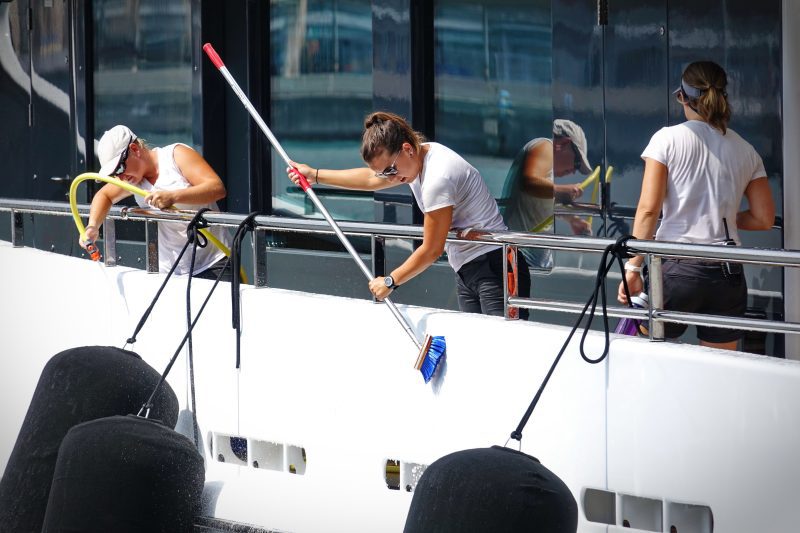
FORMAL QUALIFICATIONS
It is also important to note that experience will only get someone so far. A captain must undergo a selection of courses to gain the correct qualifications. This is also something that can vary from country to country, so captains will usually have many different qualifications under their belt. Some of the most common might include the following.
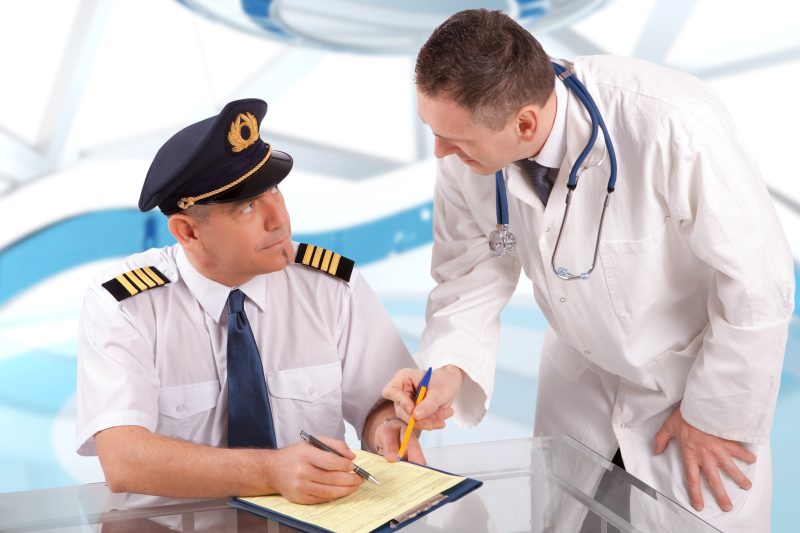
SPECIALISED TRAINING
It isn’t uncommon for a yacht captain to have taken on a selection of additional specialised training that can help them with their regular duties and beyond. This might include advanced medical certifications, diving, fishing, or water sports. A yacht captain is highly likely to use these additional skills while onboard a cruise or charter, so they can come in very handy.
PERSONAL ATTRIBUTES
In addition, a yacht captain must be a brilliant leader, be great at decision-making and communication, and have a high level of technical knowledge, crisis management skills, and cultural awareness. These are just a few of the essential personal attributes it takes to be a yacht captain.
FURTHER READING
As you can see, the role and responsibilities of a yacht captain go far beyond navigating waters. These people are some of the most dedicated professionals you may ever meet, spending their lives working towards their goals and continually learning how to become better at their jobs. If you would like to know more about the roles aboard yachts, are interested in purchasing a new addition to your fleet, or are a first-time buyer, Simpson Marine is the place to go.
Simpson Marine is proud to be one of Asia’s leading yacht brokers. With decades of experience, we understand every inch of the industry and would be more than happy to help you make the best decisions when it comes to your yacht. Contact us today to make your yachting dreams come to life.
13th December 2023